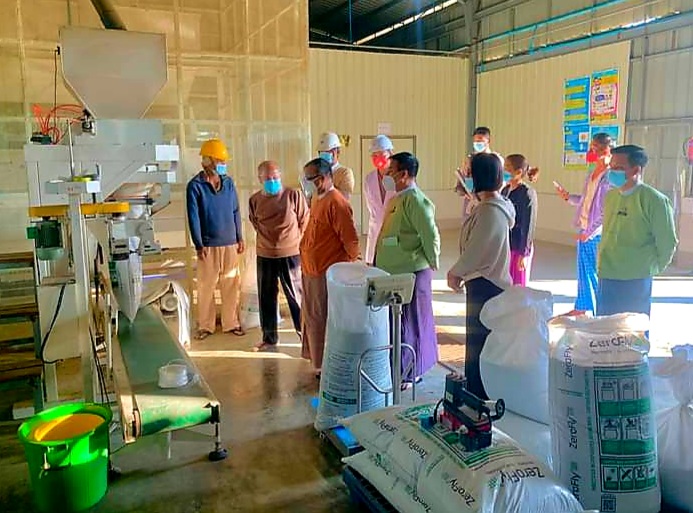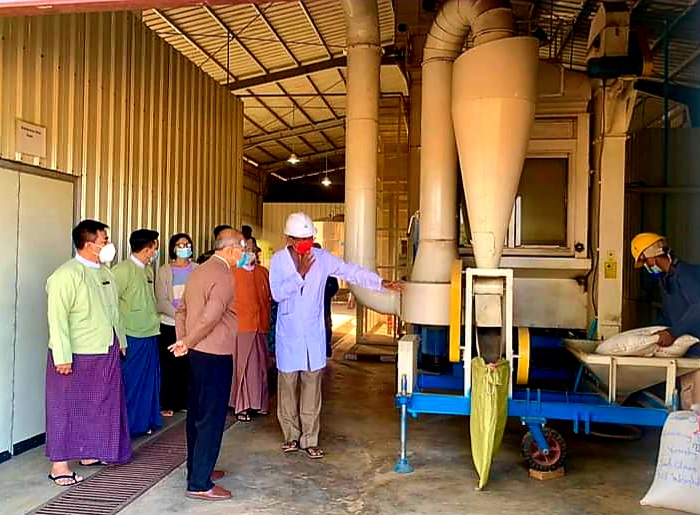25 Dec
Magway Region Chief Minister Dr Aung Moe Nyo and official concerned inspected sesame processing plant on 24 December 2020, which produces value-added sesame paste, tahini and other products.
The plant is located between Kanpya and Gwaytauksan villages in Magway Township. The Department of Rural Development jointly establishes it under the Ministry of Agriculture, Livestock and Irrigation (MOALI) and non-political NGO, PC Myanmar. The plant is manufacturing peanut butter and tahini with good packaging.
Director-General U Myo Aung of the regional Department of Rural Development explained to the regional chief minister and regional minister U Win Maw Htay for Agriculture, Livestock and Irrigation on the management systems of the plant intending to move forward to the sustainable agriculture of the growers.
Afterwards, the team led by regional chief minister inspected the operations of the plant and value chain process. The tahini and peanut butter are sent to 37 supermarkets in Yangon and Mandalay. Further plans to link with European markets were also explained.
Regional minister U Win Maw Htay instructed the requirements and urged them to entice more growers to participate in this value chain through raising awareness of the value chain process.
A sesame processing plant, which can produce 7 tonnes of value-added sesame per hour and 6 tonnes of purified sesame oil every 8 hours, started operations on 23 December 2018 in Magway Region.
The plant is making value-added products using good manufacturing practices (GMP), and it is only processing sesame seeds supplied by over 600 growers from 30 villages in Minbu and Magway townships. The sesame is also produced following Good Agriculture Practices (GAP). The value-added sesame products are placed in the export markets, said an official in charge of the plant.
“The plant was initiated under the Italy-based Progetto Continenti (PC) project, which aims to consolidate the productive base of small-scale sesame growers through their training and organization, sustainable agriculture, and upgrade of the value chain. When that project’s term was nearly due, sesame growers’ groups were set up to help growers who participated in the project to find a market. Now, they are supplying raw materials to sesame processing plants,” said U Naing Win Lat, PC Myanmar project manager for agriculture.
The cost of the facility is estimated at K180 million, including infrastructure costs for electricity and water, and installation of sesame seeds cleaning machine, weighing machine, packaging machine, oil-producing machine, storage tank, laboratory, and drainage system, which was carried out with the use of Italian technology. “The growers who have linked with the plant have a strong market. Also, they do not have to pay additional charges to brokers,” said U Sein Aung Min, a member of a sesame grower group from Nankan Village in Magway Township.
Zayyatu (Magway) (Translated by Ei Myat Mon)



